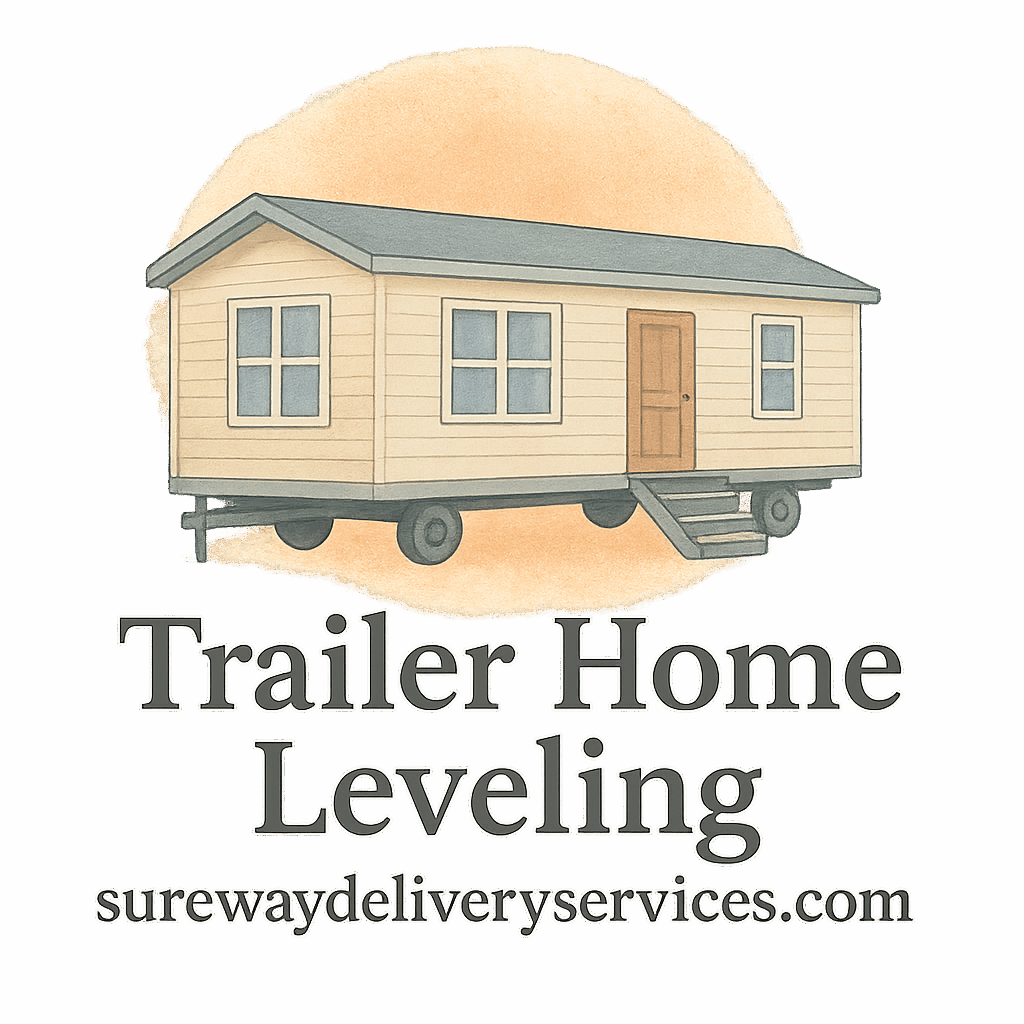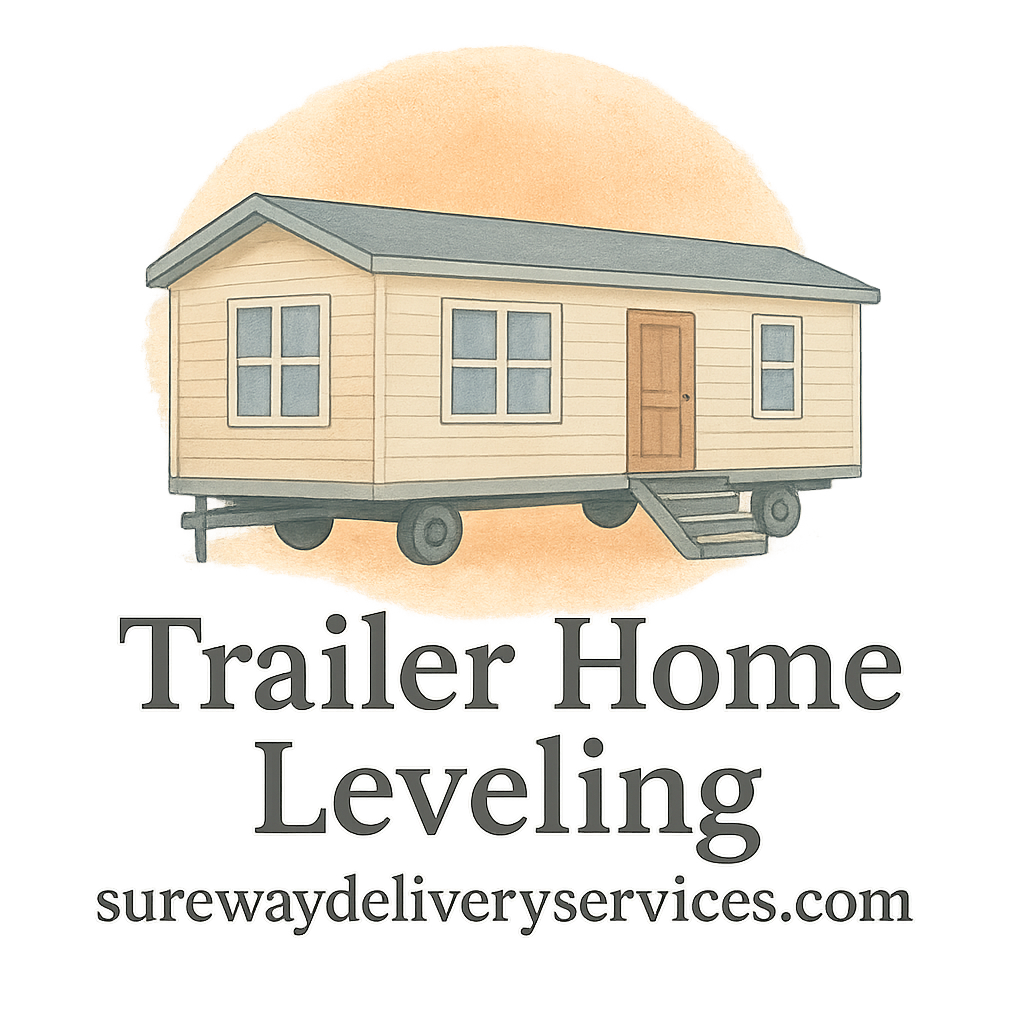Understanding the Importance of Post-Leveling Maintenance
So, you’ve had your trailer home leveled—great! But here’s the kicker: that’s just the beginning. Leveling your trailer is like resetting the balance, but without proper follow-up, things can go downhill fast. This post is your essential guide to keeping your trailer home stable and safe after leveling.
Think of it this way: you wouldn’t buy a car and never change the oil, right? Same logic. Post-leveling maintenance ensures your home stays in tip-top shape, so let’s break it all down into simple, doable steps.
Tip #1: Schedule Regular Inspections
Routine inspections are like health checkups for your home. Even if everything feels solid, subtle shifts can happen over time.
- Do it at least once a year — check out this Annual Inspection Guide.
- Look for warning signs like uneven floors, sticking doors, or minor cracks.
- Catching these early prevents bigger problems—and bigger bills.
Stay on top of your inspection game to keep things smooth.
Common Inspection Signs
- Floors that bounce or creak
- Doors and windows that don’t shut right
- Cracks forming around windows or ceilings
These little issues can be red flags. Don’t ignore them.
Tip #2: Monitor Your Trailer’s Foundation
Your trailer’s foundation does the heavy lifting—literally. So, keeping an eye on it is key.
- Watch for movement in the blocks or piers.
- Check for soil erosion or signs of shifting.
- Use a level tool to do a quick check every few months.
Foundational stability is tied closely to your home’s health. Want the full breakdown? Here’s a helpful Basics & Introduction.
Soil Shifting Awareness
Rain, snow, and even drought can shift the soil under your trailer.
- Heavy rain? Expect some settling.
- Drought? The ground might crack and sink.
Understanding these effects helps you plan for re-leveling or adjustments. For more on how weather impacts leveling, visit Trailer Issues.
Tip #3: Recheck the Leveling Every 6 Months
This isn’t overkill—it’s smart.
- Use a bubble level or laser level.
- Check from multiple points in your home.
- Make a note of any dips or angles you spot.
These checks save you from major shifts going unnoticed. Dive deeper into this practice with our Leveling Techniques.

Tip #4: Keep Your Trailer Dry
Water is your trailer’s worst enemy.
- Keep gutters clear.
- Direct water away from the foundation.
- Check under the trailer for standing water.
If your trailer’s sitting in a puddle, problems are just waiting to happen. Check this article on Maintenance & Inspection.
Drainage Solutions
- French drains
- Graded landscaping
- Ventilated skirting
These help you manage runoff and avoid water buildup.
Tip #5: Inspect Trailer Skirting
Skirting keeps pests out and helps regulate temperature.
- Look for holes, warping, or gaps.
- Seal up cracks with foam or caulk.
- Replace any broken panels.
This is an easy DIY fix but often overlooked.
Tip #6: Maintain and Test Jacks Regularly
Jacks are crucial for stability and future leveling.
- Grease moving parts.
- Check for rust and wear.
- Store them in a dry place.
Want more jack-related knowledge? Check our Jack Tools Section.
Proper Jack Storage and Use
- Keep in a shed or storage container.
- Wrap with a tarp if kept outside.
- Don’t overload your jacks—they have limits!
Tip #7: Watch for Pests and Infestations
Leveling can disrupt nesting areas, causing critters to move in.
- Look for signs of rodents or termites.
- Seal entry points around pipes and vents.
- Use safe pest repellents.
The more secure your home’s underside, the fewer issues you’ll have. Learn about Trailer Maintenance.
Tip #8: Check for Interior Shifts
Sometimes the biggest signs are inside.
- Uneven cabinet doors?
- Cracks in the ceiling?
- Floors feeling off?
These may mean your trailer needs a slight adjustment.
Tip #9: Address Plumbing and Water Lines
Leveling can tweak your plumbing alignment.
- Run all faucets and check for slow drains.
- Look underneath sinks for drips.
- Watch for pipe strain or weird water pressure.
You’d be surprised how many leaks go unnoticed until it’s too late.
Tip #10: Hire a Professional Annually
Even if you’re handy, a yearly pro check adds peace of mind.
- They spot things you might miss.
- Preventative care saves money.
- Ask about service packages that include full maintenance.
Check our trusted Service Hiring Guide and don’t miss our top Service Package Tips.
Service Package Recommendations
- Inspection + Leveling Check
- Foundation Review
- Moisture & Pest Evaluation
- Jack Maintenance
Shop around—read Customer Reviews before hiring.
Final Thoughts
Your trailer is more than a structure—it’s your home. Treat it that way. These post-leveling maintenance tips aren’t just chores; they’re smart ways to protect your investment and your comfort.
Conclusion
Leveling your trailer home is a vital first step, but real success comes with consistent maintenance. From checking the jacks to managing moisture, each step plays a role in extending your trailer’s life. Stay proactive, be observant, and don’t hesitate to bring in professionals when needed.
Want more tips and expert advice? Explore our full range of guides at Trailer Home Leveling.
FAQs
1. How often should I check the level of my trailer home? At least every six months or after heavy weather changes.
2. Can I level my trailer home myself? Yes, but it’s best to consult professionals if you’re unsure or lack tools.
3. What are the signs my trailer needs re-leveling? Doors not closing properly, cracked walls, or sagging floors.
4. What causes trailers to become unlevel? Soil shifting, weather, poor drainage, and time.
5. Is trailer skirting necessary? Absolutely! It protects against moisture, pests, and temperature swings.
6. How much does post-leveling maintenance cost annually? It varies, but budgeting tips suggest around $200–$500 yearly.
7. Where can I get more trailer leveling advice? Visit our Tips and Recommendations Hub for expert insights.
Internal Tags Included:
Annual
Checklist
Cost Tips
Customer Reviews
Home Leveling
Inspection
Jacks
Maintenance
Overcharge
Price
Recommendations
Service Package
Signs
Success Stories
Tools
Trailer Details
Trailer Home
Trailer Issues
Trailer Leveling
Trailer Maintenance
Trailer Service
Trailer Tips


